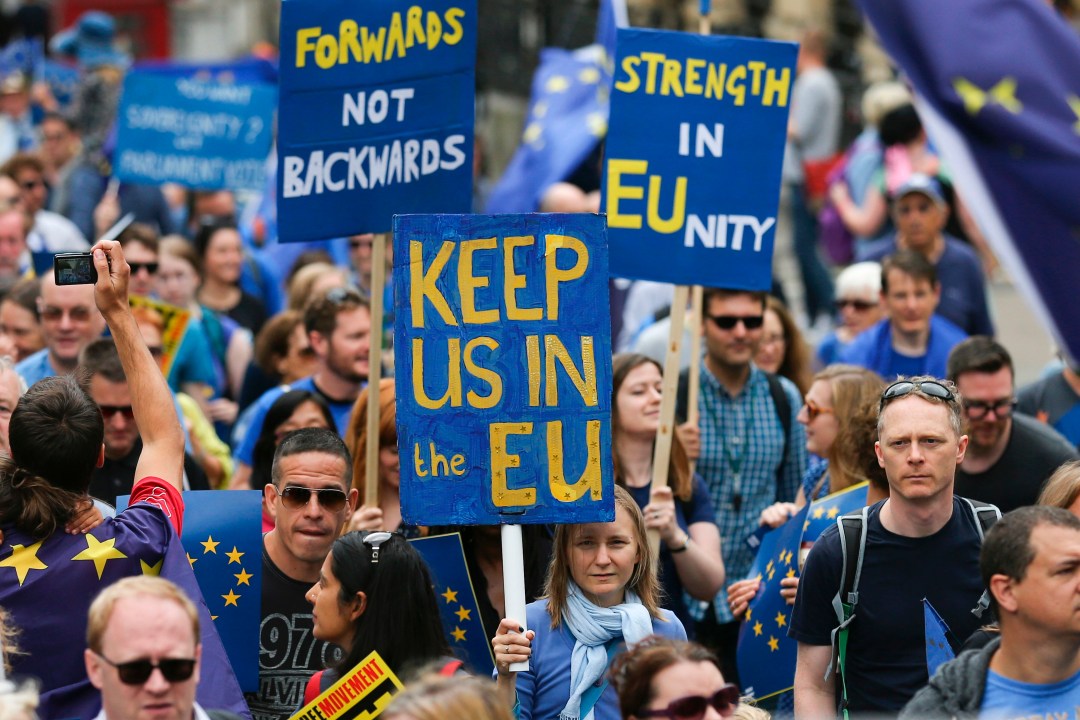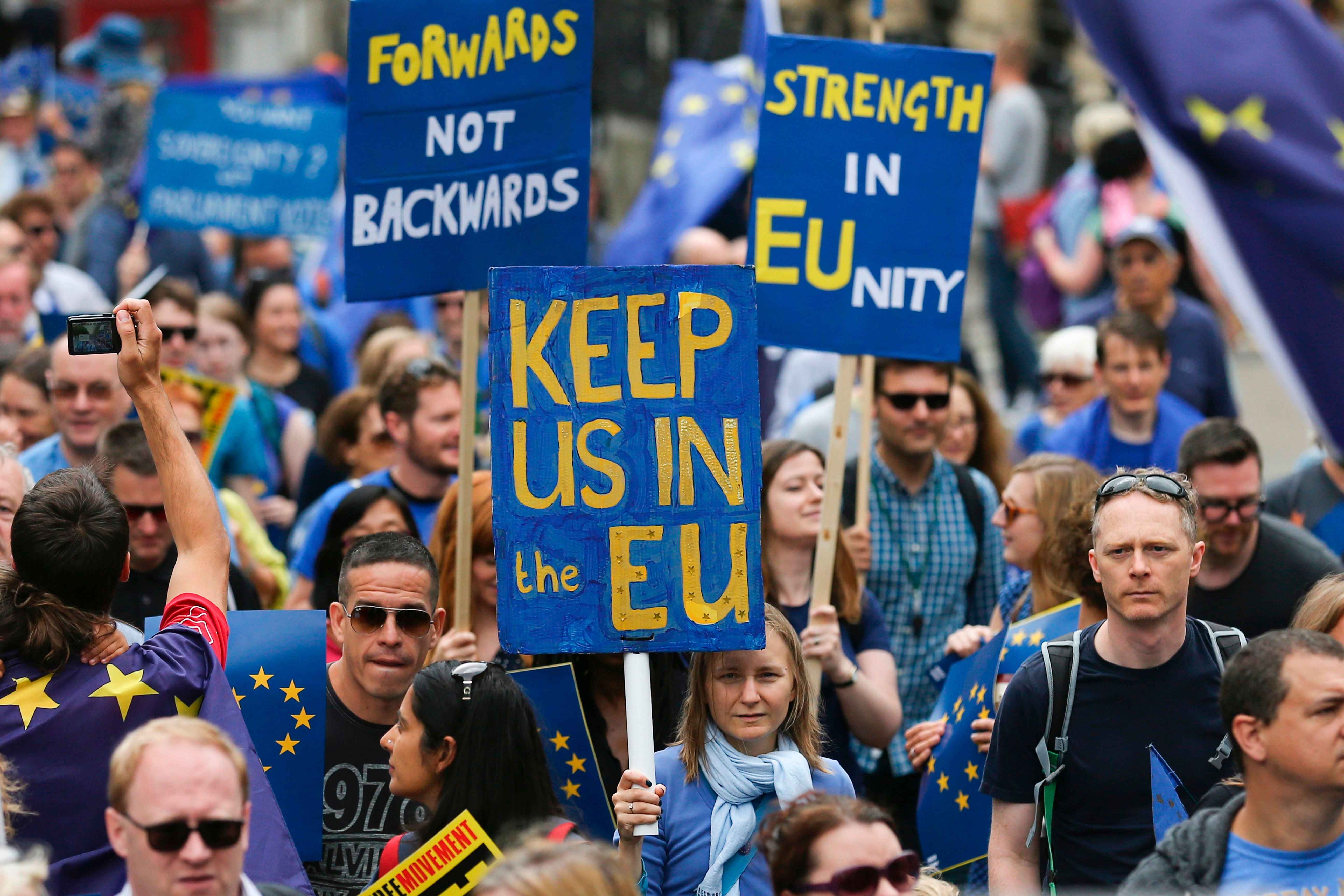The lessons to be learned from the Conservatives’ poor showing in the election could fill more pages than the national curriculum. Don’t unleash on the public a manifesto which has not even been tested among senior ministers. Don’t think you can get through a seven-week election campaign by endlessly repeating the same mantra, especially when you are being ridiculed for it. Don’t underestimate how quickly public opinion can change. Sell yourself, your party and its ideas, rather than just attacking your opponent.
Yet there is a serious danger that Theresa May and the rest of the Tory party could pick up the wrong message. There is a growing narrative that the Tories lost their majority because voters did not really want Brexit, even though four in five voted for parties whose manifesto promised Brexit. The party of Remain, the Liberal Democrats, did not manage to rally many people to its cause. The country has moved on from the EU referendum even if certain politicians (and David Cameron) have not.
The more interesting discussion is about what Britain would look like after Brexit, a conversation the Tories did not really start. Which brings us to the next wrong lesson from the election: that the public have voted against ‘austerity’. It must be tempting for MPs who have survived an electoral fright to think that opening the spending taps could save them from oblivion. But piling debt on to the next generation is as immoral now as it was in 2010, when a combination of recession and Gordon Brown’s overspending nearly collapsed the economy.
‘Austerity’ is just a populist phrase to describe good economic sense. There is nothing really austere about our public spending, which has grown year-on-year. In spite of cuts to some budgets, the government is still borrowing about £50 billion a year — overall government debt has doubled since the crash to stand at £1.7 trillion. Paying interest on that debt already costs more than educating our children, and almost as much as defence. And that is with interest rates at historic lows.
An internal Labour party report into why Ed Miliband lost concluded that the Tories triumph was not in spite of ‘austerity’ but because of it: ‘Labour lost because voters did not believe it would cut the deficit.’ Why would voters who two years ago rejected Labour spending plans now accept Jeremy Corbyn’s much more irresponsible plans? Perhaps because the Conservatives did not raise the subject until the final week of the campaign, and only then with the facile jibe about Corbyn’s ‘money tree’.
Theresa May’s single biggest error was the failure to provide proper costings in her manifesto, which robbed her of any authority to criticise Labour’s figures. It allowed Corbyn to get away with promising largesse to various parts of the electorate without proper scrutiny. Had it been applied, the size of Labour’s tax bombshell might have focused minds. The argument was, and is, there for the making: the corporation tax rate has plunged, yet UK companies are paying more tax than ever before. The 50p rate of income tax was abolished and, as a result, the highest-paid are shouldering an ever larger share of the tax burden. Since the cuts started, eight jobs have been created in the private sector for every public sector role that has been shed. The Conservatives lost their nerve in the campaign and failed to make the case for conservatism. It would be disastrous if, as a result, they felt they had to ditch it altogether. The point about Tory reforms is that they were progressive; welfare reform was tough, but it helped so many back to work that the incomes of the lowest-paid rose faster than any other group under David Cameron. Conservative reforms led to record employment, and forced inequality to a 30-year low.
The Tories can proudly talk about social justice, fairness and equality — and show how Conservative reforms are the surest route to success. If the party has a nervous breakdown now, and decides (for example) that this election result was somehow a demand for a soft Brexit, then it will make a bad situation far worse. Jeremy Corbyn has presented himself as some kind of novel political force, yet his success is really down to a trick which is as old as democracy itself: bribing the people with their own money.
What is new is that no one challenged him. Where it took Gordon Brown a decade to ruin the public finances, Corbyn and John McDonnell would, between them, achieve that in months. Yet the Tories never make that point.
Thankfully, Jeremy Corbyn did not win the election, and — at least for now — Labour will not have the chance to do as it has always done in office: spend and borrow its way into an economic crisis. That is why the Conservatives almost always lead the polls when it comes to questions of economic competence. The tax cuts worked, welfare reform led to a jobs boom. But an addiction to self-flagellation (and an obsession with Brexit) has stopped the Tories from playing their strongest card.







Comments